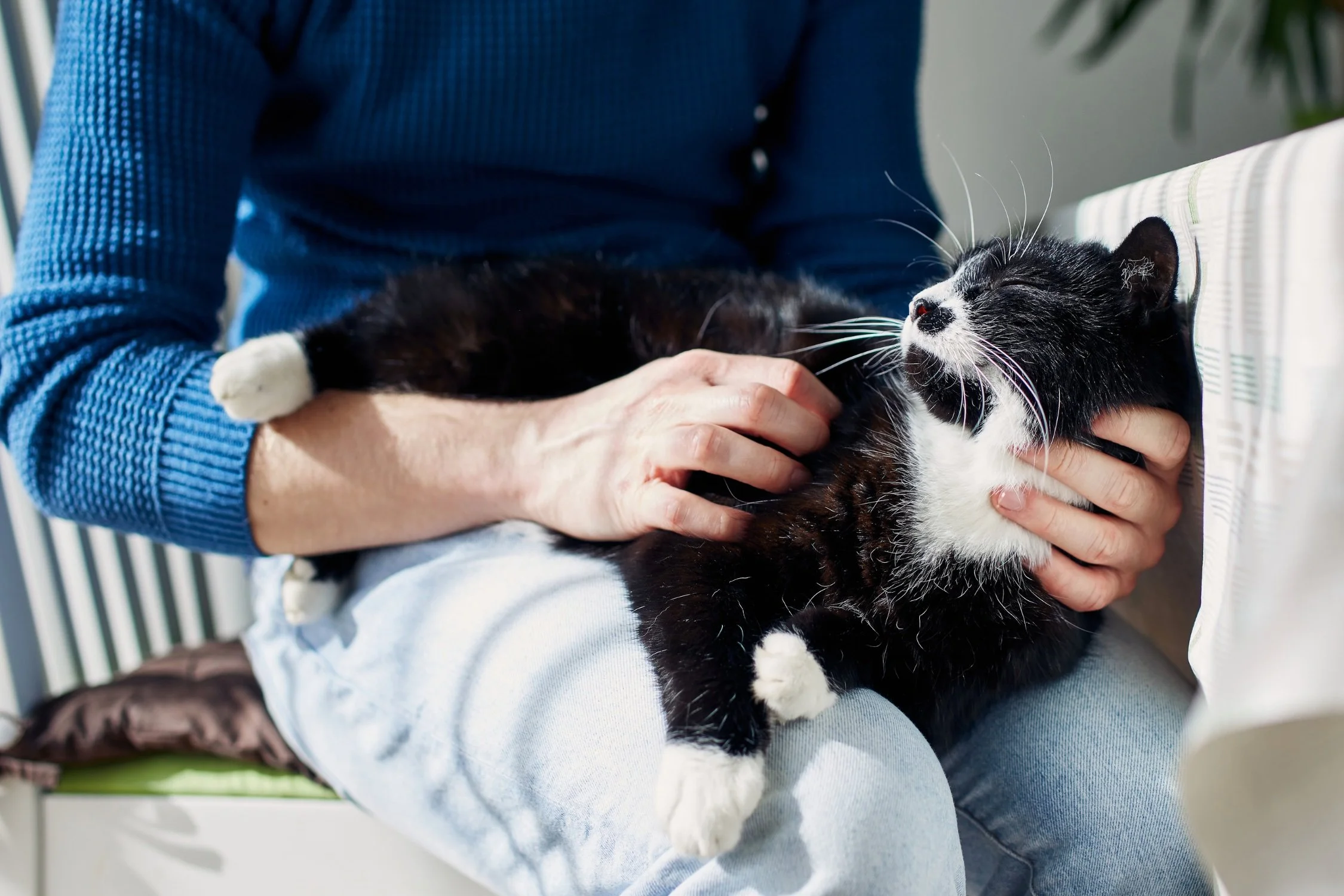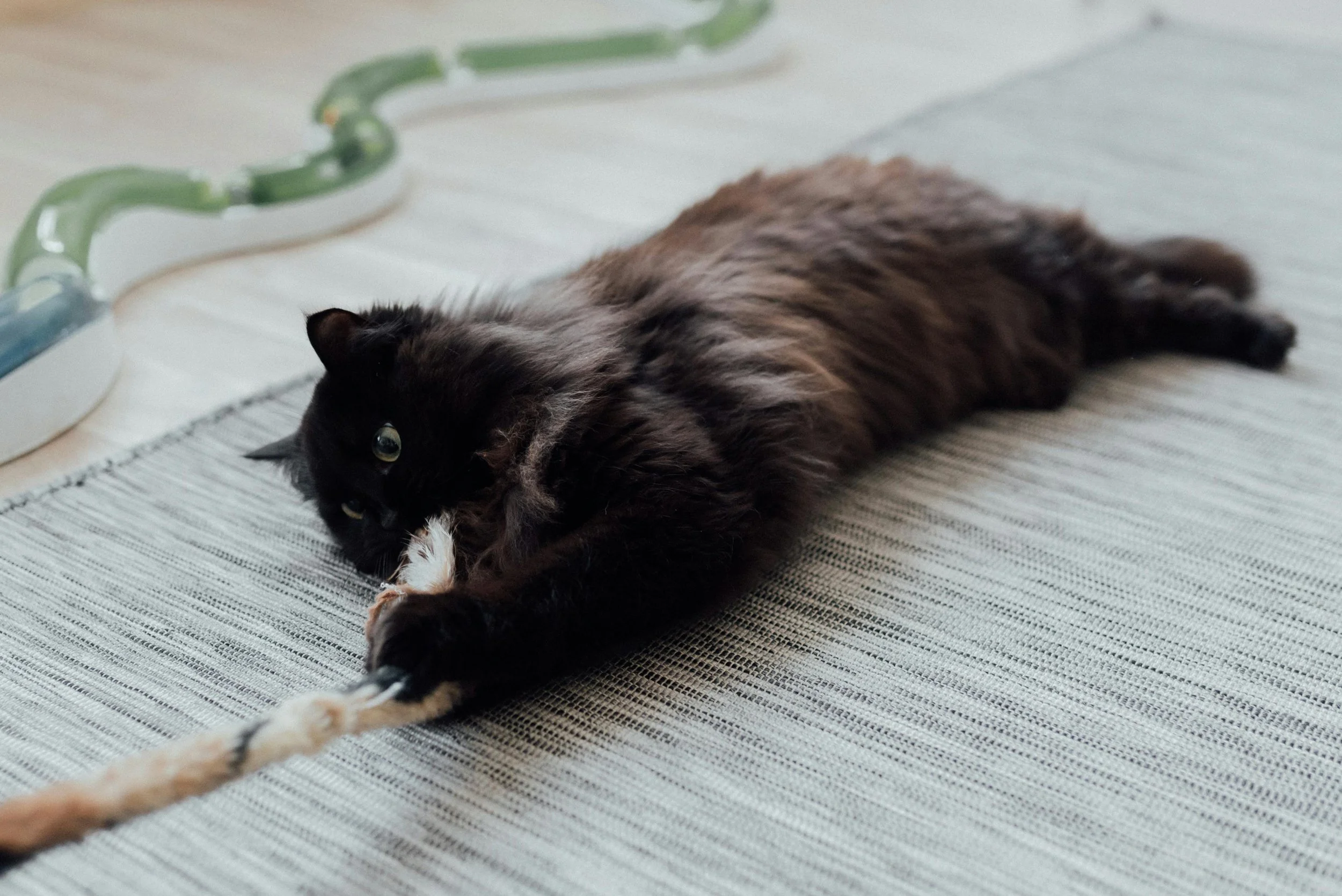Debunking Myths About Senior Cat Adoption
Senior cats are often overlooked at shelters for younger felines because of common misconceptions associated with their care and adoption. Whether it's because people believe senior cats are too sick, too expensive to care for or have unpleasant personalities, older cats are left at shelters for long periods of time without any adoption prospects.
Senior cats make wonderful pets, despite the common misconceptions that cloud their adoption process. While your first instinct may be to adopt younger cats, a senior cat may be the perfect choice for you.
We’re going to shed some light on these myths and show that senior cats are worth considering adopting as much as their younger counterparts.
Here are some common myths about senior cats:
They all have health issues
As cats get older, they can develop health conditions and problems, just like people can. However, this does not mean that every older cat is going to get sick or deal with health issues later in life. Many cats, just like many people, do not experience serious health conditions as they age. While older cats will show the natural signs of aging, such as brittle nails and changes in their sleep or appetite, regular vet checkups and a proper diet can ensure your cat lives a healthy life.
Older cats are mean or less affectionate
A common misconception is older cats become grumpy as they age, which is simply not true. While some cats may experience mood changes as they age, many senior cats actually mellow out as they get older, seeking more affection from their human companions. If your senior cat seems angry or mean, it may be because of something in their environment, or pain and discomfort they are feeling from aging. If you notice a change in your cat’s temperament or affection, it is best to discuss it with a vet in case of an underlying health issue.
Older cats are boring or less active
While many cats do slow down with age, senior cats can be just as playful as kittens and younger cats. All healthy cats require regular playtime and exercise, and senior cats are no exception. They may not have the same energy levels or stamina as they once did, but playtime is still essential to the physical health and well-being of senior cats. Older cats can still enjoy shorter, more gentle playtime sessions, so try to find new ways to keep them engaged and active.
They can’t adapt
When you first adopt an older cat, they may seem set in their ways. This does not mean that they cannot adapt and adjust. Any cat, regardless of age, will need time to adapt and become comfortable with their new environment. The change from moving to a new and unknown place, especially if they have been at the shelter for a long time, can be scary. Given patience and time, senior cats will be able to settle in and become comfortable in their new homes.
They will pass away soon
Many people avoid adopting senior cats because it will be too painful and they don’t want to say goodbye so soon. As with anything in life, there are no guarantees. Cats can live a long time and die from natural causes or can die at earlier ages from illness or accidents. This, however, should not discourage people from adopting older cats. By adopting a senior cat, you are providing a second chance to a feline and allowing them to live the rest of their years (whether it’s two years or ten years) in a happy and loving home.
Adopting a senior cat, as with any pet, can come with its own set of unique challenges. Nevertheless, with patience, time and understanding, adopting a senior cat will be a challenge that is worthwhile.
By debunking these common myths, we’re hoping to encourage others to consider adopting senior cats, who are so often overlooked. If you consider their special circumstances and requirements, senior cats can live out their golden years in caring and loving homes.
Note: This blog provides a list of common myths about senior cats and their care. For more information about how to care for a senior cat, you can check out our previous blog posts or PetMD for a more comprehensive care guide. Always consult your veterinarian for personalized advice to ensure your cat remains healthy and comfortable.


